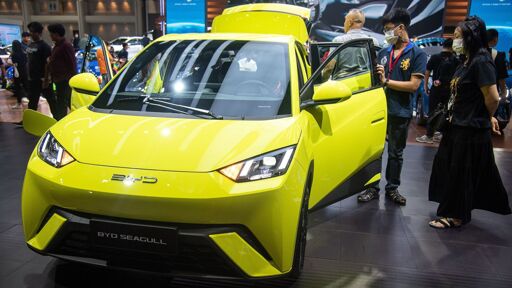Summary
China has become the world’s largest car exporter by dominating electric vehicle (EV) production, surpassing traditional carmakers in Europe, Japan, and the U.S.
This shift stems from China’s heavy investment in battery technology, supply chains, and generous subsidies, enabling it to produce cheaper EVs, like the BYD Seal, compared to Western competitors.
Europe and America, reliant on outdated internal combustion engine expertise, have struggled to adapt to this disruptive innovation.
Many nations are imposing tariffs on Chinese EVs, but without robust domestic battery infrastructure, Western car industries face mounting challenges as the EV transition accelerates.



Meanwhile, North America is applying tariffs to Chinese Electric Vehicles, rather than subsidizing North American EVs, allowing North American car manufacturers to continue to invest in and sell Gas Vehicles.
If we actually cared about competitiveness we would be subsidizing EVs to match China (if not exceed) so that NA companies could invest in new technology and supply chains. Instead by discouraging foreign competition, we’re just defending our auto industry’s right to not innovate and to keep burning fuel.
The problem is that the main American(*) EV maker, Tesla, is politically toxic to the save-the-planet camp. Whereas the favored US carmakers are incompetent.
(*) Looked at another way, Tesla is part of the Chinese EV wave, not in opposition to it. More than 50 percent of its manufacturing capacity and profits are from its Shanghai plant.
Another problem is that American car makers are not interested in making affordable small vehicles, they’re interested in maximizing their per vehicle profit margins which means SUVs and trucks. Very few options for compacts globally, let alone in north America.
No, Tesla is not. Ford would not be part of the Chinese EV wave just because it was able to sell cars in China (if it could).
They should be doing both.
30% Tariff on PRC cars (note: not just EVs) which directly funds a 30% subsidy on US made EVs. (just EVs)